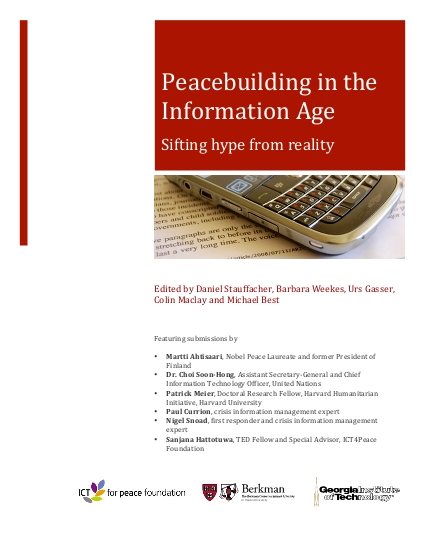
Going beyond the current debate and positive hype about ICTs, this paper probes difficult questions and provides concrete recommendations concerning:
- the effectiveness of current systems of crisis information management;
- the need for a comprehensive assessment of the effectiveness of the use of ICTs in crisis response by the academic community;
- the need for better coordinative mechanisms amongst the key players, including the UN and its various agencies;
- the humanitarian responsibility of various actors, in particular new players such as crowdsourcing providers and social media;
- the serious challenges that still need to be overcome in terms of underlying political, hierarchical and traditional resistance to information-sharing amongst diverse organizations;
- the negative potential of ICTs in compromising the security of persons at risk in conflict situations;
- the lessons learned from the earthquake in Haiti on the use of new ICTs in disaster response situations and,
- the big picture of what this shift to an ICT-focused approach really means for existing humanitarian response systems.